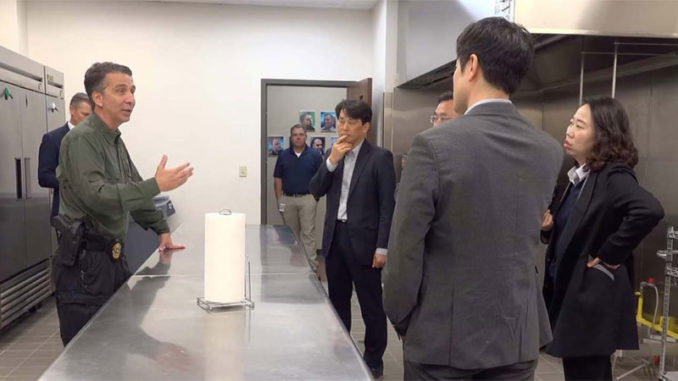
Compared methods, know-how of incident response
The St. Charles Parish Department of Homeland Security and Emergency Preparedness is well-versed and drilled in its protocol when an emergency may arise — but there are always ways to tweak and improve the process.
The chance to potentially do so through the exchanging of ideas arose recently through a unique, and quite distant, source.
This month, the department welcomed a delegation from the South Korean National Institute of Chemical Safety, giving the group of visitors a tour of the parish’s Emergency Operations Center while discussing ways local government prepares for and manages emergency situations.
Joe Ganote, St. Charles Parish’s Emergency Preparedness Director, said a representative reached out to inquire about the possibility of a visit to come to the parish and learn more about ways to effectively respond to an incident or dangerous situation.
“He works as an assistant professor for the Department of Environmental and Safety Engineering, and did a lot of his studies at Texas A&M,” Ganote said. “He found us through the Internet and some of the awards we’ve received for things like the All Hazards Guide … they asked if they could visit and kind of pick our brain as to how we handle emergencies on the chemical side.”
After vetting the group, the visit was confirmed, and the South Korean delegation – including several teachers and institute representatives — traveled more than 7,000 miles to learn more about the process, which is handled very differently here than there.
“Everything here is handled locally first, especially here in Louisiana,” Ganote said. “So hurricane, chemical, a derailment … everything is worked locally until you need more resources, and then you reach out to the state and then to the federal government. It moves up the chain.
[pullquote]“I thought it was important to take this opportunity because I think we can learn as much from them as they do from us.” – Joe Ganote[/pullquote]“But they’re different. Everything is run straight from the national level. They really don’t have emergency preparedness directors in their towns and cities, they run things through the federal level. It appears like they’re maybe looking to shift a bit and localize those efforts more.”
He pointed out that while South Korea is very small in size, it’s also densely populated.
One thing Ganote and his team communicated to the visitors was the importance of building working relationships with those in industry and with other response organizations — and doing so before an incident breaks.
“We take a holistic approach to any emergency,” Ganote said. “We respond to anything from evacuation to shelter and placement, to decision making on hurricane preparedness at the local level and even the state. On the industrial side, the relationships we build with those people is really the key.
“It’s important to build that on the front end so that when you do have a bad day, you’re not meeting for the first time. You’ve already built that trust.”
Another point was the EOC focusing on performing its role without spreading itself into other areas of concern.
“We don’t regulate … we’re not a regulatory agency like DEQ on the state level or the EPA at the federal level. We help manage. We want to help them with their problem, whatever it potentially may be. We don’t get into the weeds … we’re not doing air monitoring because we’re getting complaints. We position DEQ and EPA to be able to do their jobs, and we’re here to protect the public outside of their fence line,” Ganote said.
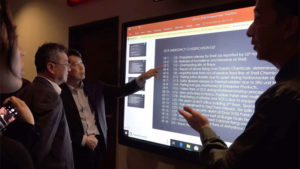
While the request was made in order to come here and learn, Ganote called it educational for his team as well.
“I think it was a great experience. I thought it was important to take this opportunity because I think we can learn as much from them as they do from us,” Ganote said. “The old axiom, you want to surround yourself with people smarter than you. Not that they’re smarter, but they think differently, and it’s helpful to hear their approach, what’s the same, what’s different, and it can kind of validate your own way of doing things.”

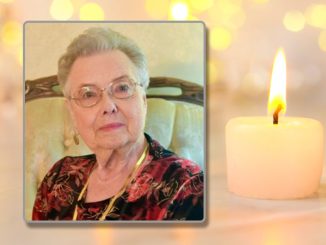
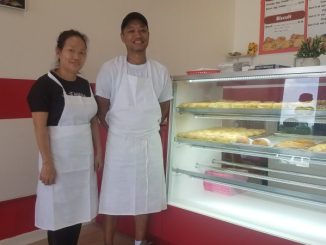
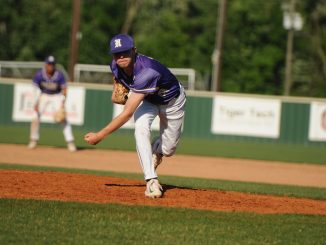
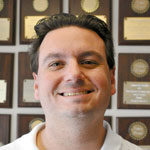
Be the first to comment